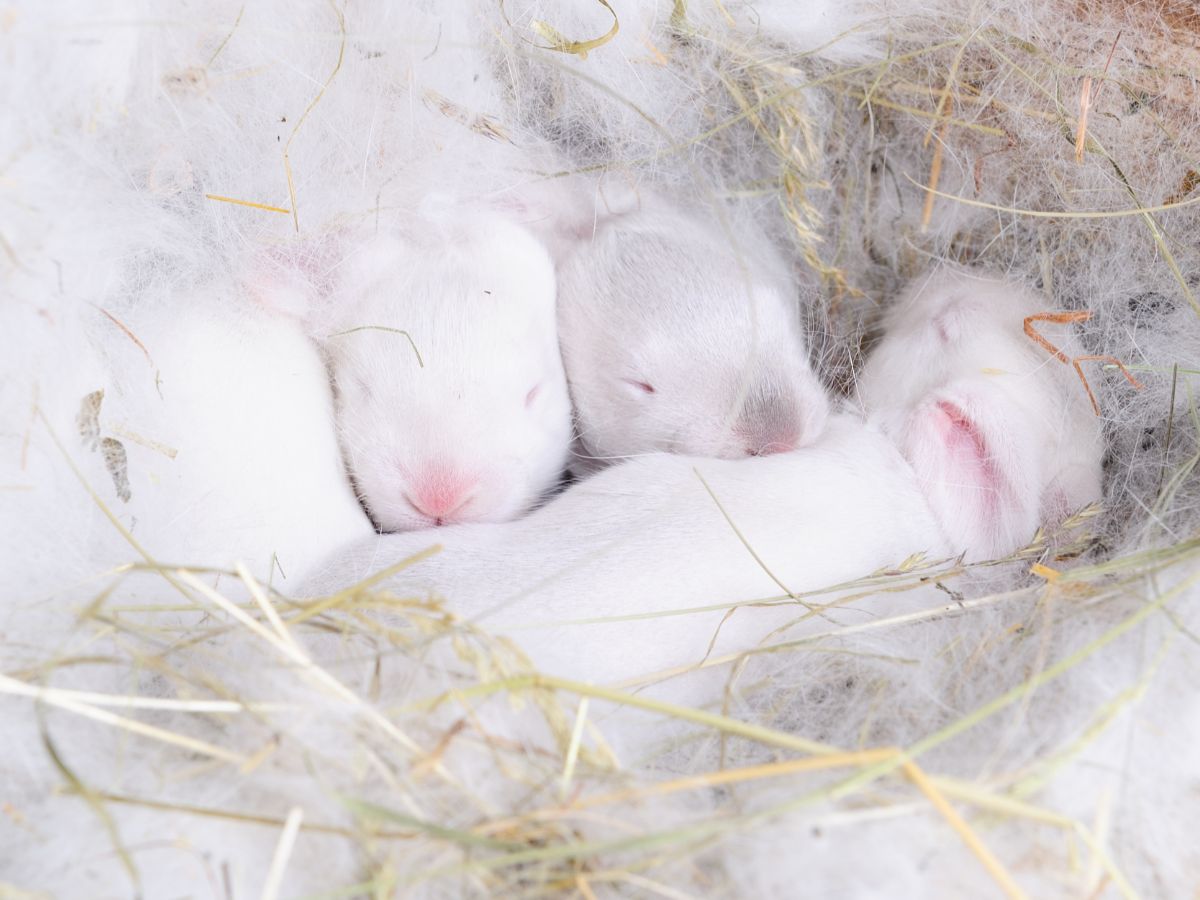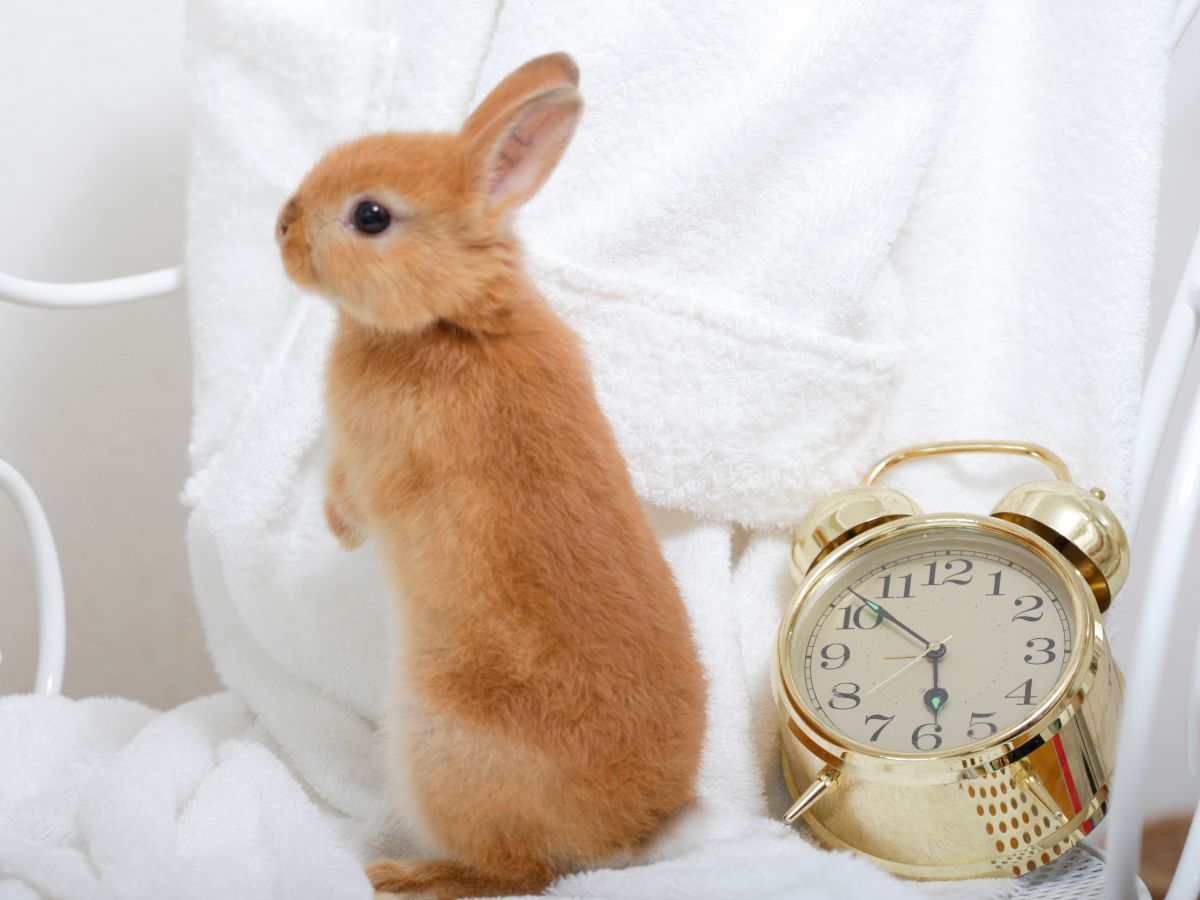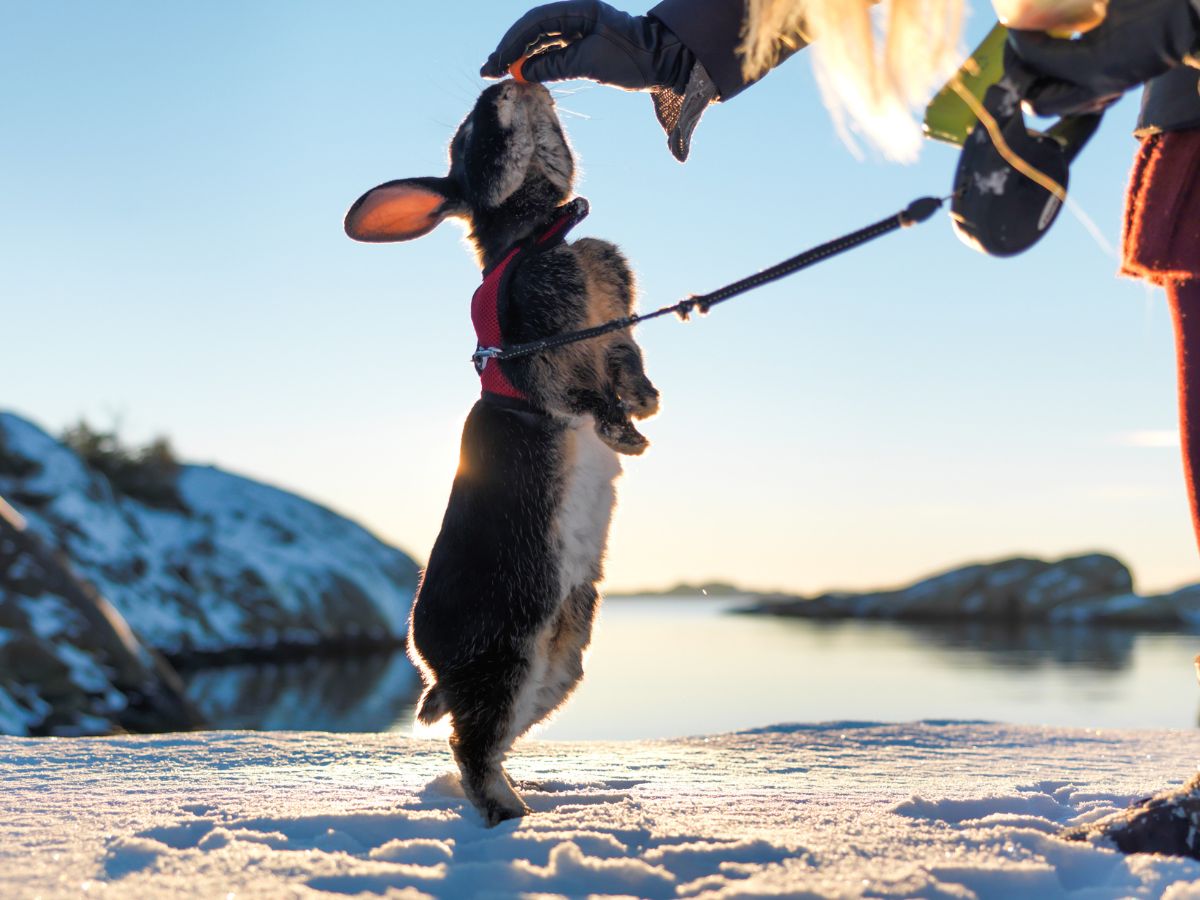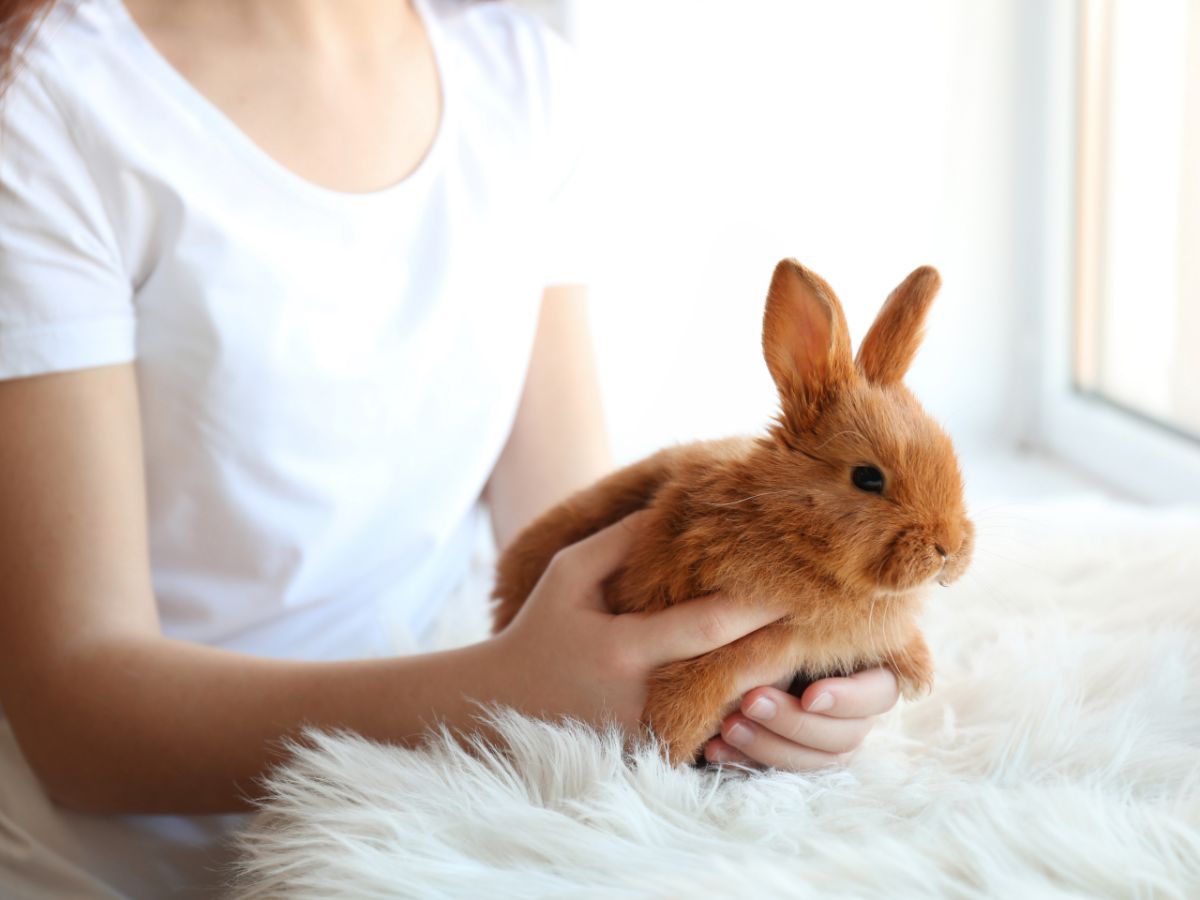If you are considering adding a few bunnies to your home, there are a few things you may need to research about keeping these animals as pets. One of the greatest issues you may face as a rabbit owner is unwanted pregnancies. So, at what age can rabbits get pregnant?
Rabbits can get pregnant at different stages, depending on the type of breed. Smaller breeds such as the Dutch and Polish Dwarf will sexually mature at 3.5 – 4 months of age. Medium to large rabbit breeds will reach sexual maturation at 4 – 4.5 months, and giant breeds will mature at 6 – 9 months.
You must know which breed of rabbit you own so that you can track when your babies will sexually mature. Many people already know the expression ‘breeding like rabbits, which is generally no joke. If you do not want your house overrun by a tsunami of baby bunnies, you will need to know the gender of your rabbits and their age to determine sexual maturity and possibly consider neutering them.
Contents
When Can Rabbits Get Pregnant?
Pregnancy can become a major inconvenience and added responsibility to care for your pet unless you are trying to breed your rabbits. While three months may seem like the smallest amount of time, that’s how long you may have before a dwarf rabbit can become pregnant.
Smaller breeds can reach sexual maturity and fall pregnant as soon as 3.5 to 4 months old; this is why it is so important to know the sex of your rabbits and their age to prevent an unwanted pregnancy.
Medium to larger breeds of rabbits can sexually mature at around 4 to 4.5 months old, while giant breeds take a little longer and will only reach sexual maturity at 6 to 9 months old.
Female rabbits are called does, and their gestation period is usually between 31 and 33 days. This timeframe does not give you much time to notice that she may be pregnant, so you will need to observe your female rabbits if pregnancy is possible.
The process of giving birth is called kindling, which usually only lasts for around 15 minutes and generally occurs in the early morning.
Signs That Your Rabbit Is Pregnant
If your rabbits have not been spayed or neutered, and you have a mix of males and females, there is a high possibility that your female rabbits will become pregnant. You will need to monitor your rabbits closely to check for signs of pregnancy, as the gestation period is only around 30 days.
Physical Changes – As with all mammals, weight gain is the most obvious sign of pregnancy. If your female rabbit is pregnant, her belly will grow and become more prominent throughout the pregnancy. Around 10 to 12 days after breeding, you may be able to feel tiny marble-sized lumps inside your rabbit’s belly, which are the baby bunnies growing. If you wish to check for these lumps, you must do so gently.
Mood Swings – If you have a very friendly rabbit, you may be able to tell that she is pregnant by observing her mood. During the pregnancy, the doe will become moody or cranky and prefer to be left alone. However, if your rabbit was already quite unfriendly before the pregnancy, it will be harder to tell if the mood swings are a sign that she is pregnant.
Eating Habits – A pregnant rabbit will eat more than usual, as she needs the extra energy to grow and feed her babies. If you notice your rabbit is eating more than usual, or you are filling up their bowl of pellets regularly, this could signify pregnancy.
Nest Building – When your doe is around a week from giving birth, you may notice that she is starting to build a nest in preparation for the baby bunnies. She will usually build this nest out of straw or hay. She may also push bedding in the enclosure together to create a more comfortable place for her to give birth.
Pulling Out Fur – A pregnant female rabbit may start pulling out chunks of her fur to line the nest she has built, which will help to keep her babies comfortable and warm once they are born. Once your rabbit starts pulling out her fur, you can expect to find baby bunnies in the nest over the next day or two.
Digging Holes – If your rabbits are not kept in an enclosure, you may start to find holes in your garden where they are burrowing. A pregnant female will burrow a hole that will form the nest that she gives birth in. To prevent your doe from birthing in the ground, you can make a comfortable, warm nest for her out of a box, some hay, and blankets.
How To Care For A Pregnant Rabbit
Pregnant rabbits will need more food than usual because they need to consume enough energy for themselves and the baby rabbits growing inside them.
You should increase the number of fresh vegetables and pellets you feed your rabbit while she is pregnant, and an unlimited amount of alfalfa hay should be available for your doe to graze on at all times.
Your rabbit will also need an unlimited amount of fresh water, which you can provide for her in a bowl or via a drinking bottle.
To keep your pregnant rabbit relaxed and happy, you can build a nesting box for her and line it with hay and blankets for warmth and comfort. You should also prevent animals that may appear to be predators, such as dogs, from coming too close to the enclosure, as this could cause unnecessary stress for your doe.
How Many Babies Can Rabbits Have?
The average number of baby rabbits born in a litter is six; however, your rabbit can give birth to between 1 and 14 babies. Baby rabbits are called kits; they are born deaf, blind, and hairless. Only after around ten days will they start to develop their usual features.
The doe will nurse her kits two times a day, in the mornings and the evenings. The kits will be weaned off their mother’s milk when they reach four to six weeks old.

What To Do After Your Rabbit Gives Birth
It would be best if you could provide a separate area for your doe in the enclosure after she gives birth. Unlike some mammals, does do not want to be around their kits the entire time. Her presence could potentially draw the attention of predators to the nest.
You will need to create a comfortable and relaxing area where the doe can retreat and spend some time away from her kits. A simple shoebox would work well, as long as there is enough space to house her inside.
Rehoming The Baby Rabbits
Unless you want to keep all 6 to 15 baby rabbits and spend the money neutering and spaying them to avoid hundreds of baby rabbits storming your home within just a few months, you will probably want to rehome the kits.
Kits can generally leave their mother once they are around eight weeks old, which is when you can start looking for new homes. You should investigate any potential new homes for the babies to ensure they will have enough space and food that the new owners will provide.
Can Rabbits Have A False Pregnancy?
While uncommon, female rabbits can experience false pregnancies. False pregnancy happens when the does body thinks and behaves like it is pregnant, even when it is not. Your doe may exhibit pregnancy signs such as nesting and acting moody, despite not being pregnant. These false pregnancies generally last around two to three weeks.
To ensure your doe is pregnant, you will need to have them checked by a vet to confirm the pregnancy.
Conclusion
Female dwarf rabbits can get pregnant from as early as 3.5 months old, while medium to larger breeds sexually mature at 4 to 4.5 months, and giant breeds at 6 to 9 months. Your rabbit may be pregnant if she is getting larger, eating more, acting moody, and showing signs of nesting.




